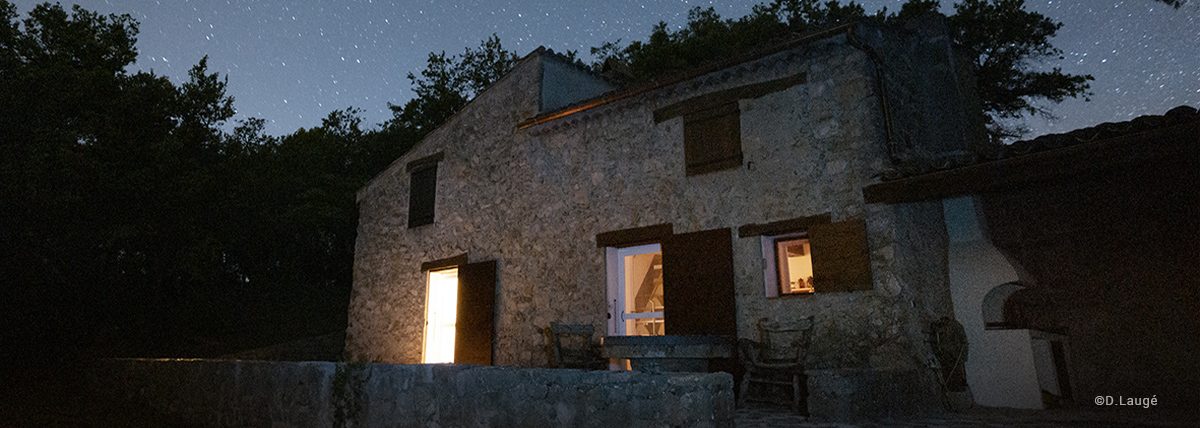
June 2023
Agenda
Seminars and residential studies
Chromosome regulation and epigenetics – Seminar organised by Jérôme Déjardin from June 5 to 10.
Genomes supposedly contain all information supporting living organisms. However, how genomes are interpreted, regulated, maintained, or evolve and respond to environmental cues remain crucial questions. This seminar gathers scientists with a broad expertise in studying mechanisms of genome regulation using distinct models and technologies. How gene expression patterns are established and maintained through cellular proliferation and development will be topics covered by this seminar. In some (rare) cases, gene expression can be modified without detectable change in the DNA sequence, and inherited across generations. This trans/intergenerational epigenetic inheritance has the potential to represent an adaptative mechanism of species evolution independent of genetics, a fascinating question that will also be covered at the molecular level this week.
Michel Serres, philosopher of science and technology ? – Seminar organized by Bernadette Bensaude-Vincent, Roland Schaer and Sophie Bancquart from June 19 to 24.
Four years after the death of Michel Serres, this seminar aims to stimulate philosophical research to revive and prolong his thought, both in France and abroad. It is intended to support and strengthen the team responsible for the publication of his complete works. Starting from an inventory of research and work in progress and an initial mapping of the archives he left us, the purpose of the seminar is to identify areas for reflection and future research, to federate the work in courses and to constitute the core of a network of young researchers and seniors registering their work in the wake of the philosophy of Serres.
Franz Kafka’s German-Hebrew Bilingual Notebooks – Small residential study organized by Keren Mock from May 30 to June 10.
It is a question of exploring new aspects of the work of writer of Franz Kafka (1883-1924) and related to his biography: the analysis of the bilingual notebooks (German-Hebrew) kept in the archives of Oxford and the National Library of Israel. This work around Kafka’s archives, particularly in Hebrew, will reveal and explore an unprecedented component of his work.
Essay on destruction – Small residential study organized by Pauline Hachette from June 19 to 24.
At the crossroads of aesthetics, literature and social and political questions, this work proposes to reverse the perspective induced by the question of “collapse”, and the passivity that it can suggest, to question the gesture of destruction, its visible and invisible dimensions, its places such as the transformations it operates on matter, the practices it covers and the subjective experiences we have of them, the affects of rage, jubilation or regret that cross it, or even the frameworks to which it gives rise.
The brain that pulls the trigger : Syndrome E – Small residential study organized by Itzhak Fried from June 19 to July 1.
The transformation of previously non-violent groups of individuals into repeat killers has been a recurring phenomenon throughout history. This apparent transition from large numbers of seemingly normal and “ordinary” individuals to the perpetrators of extreme atrocities is one of the most striking variants of human behavior, yet often seems incomprehensible. This transition is characterized by a set of symptoms and signs for which a common syndrome, Syndrome E, has been proposed (Fried, Lancet, 1997). This project aims to synthesize the development of the E-syndrome hypothesis and its relevance for current and future societies, integrating new information that has emerged in recent years in the fields of neuroscience and artificial intelligence. [learn more]
Residencies
Author’s Residency
Eugène Ébodé
Born in 1962 in Douala, Cameroon. Eugène Ébodé is currently administrator of the chair of African literature and arts at the Academy of the Kingdom of Morocco and professor at Lansana Conté University in Sonfonia, Guinea. His novelistic work presents a diversity of territories, continents and themes. The project on which he will work during his stay at the Foundation tells the story of the young Neapolitan Angelina Salomone. This one will fall in love with a young priest, Francesco Saponaro, who returns from Africa where he spent his young years of priesthood. This love, at first secret then stifled by the two young people, will burst one stormy evening. [Learn more]
Composer’s Residency
Tomás Bordalejo
Our first winner of the new Composition Prize obtained the 2022 Sacem “Francis and Mica Salabert” Prize, is a laureate of the Banque Populaire Foundation, and in 2019 won the Tribune des Compositeurs de l’Argentine (TRINAC) prize. His work is part of a real compositional research marked by a constant dialogue with the arts, architecture, urban planning, or even philosophy. His project will focus on an instrument with deep Mediterranean roots and a history marked by migration: the mandolin. [Learn more]
Exhibitions
“The Miserere” by Rouault
The Abbey of La Celle (Var) is home to Georges Rouault’s Miserere, a set of 58 engravings of exceptional quality, belonging to the collection of the Treilles Foundation. They were engraved from 1917 to 1927 by one of the most important representatives of sacred art of the 20th century. Exhibition visible until September 17, 2023. [More information]
Applications
Application forms have been open since May 1st for:
-The 2024 season
– the Photography Residency Prize
– the Fondation des Treilles – Escourbiac Prize
– the Musical Composition Prize
– the André Gide – Jean Schlumberger Centre Archives Prize
– small residential studies
-The 2025 season
– seminars
– large residential studies
